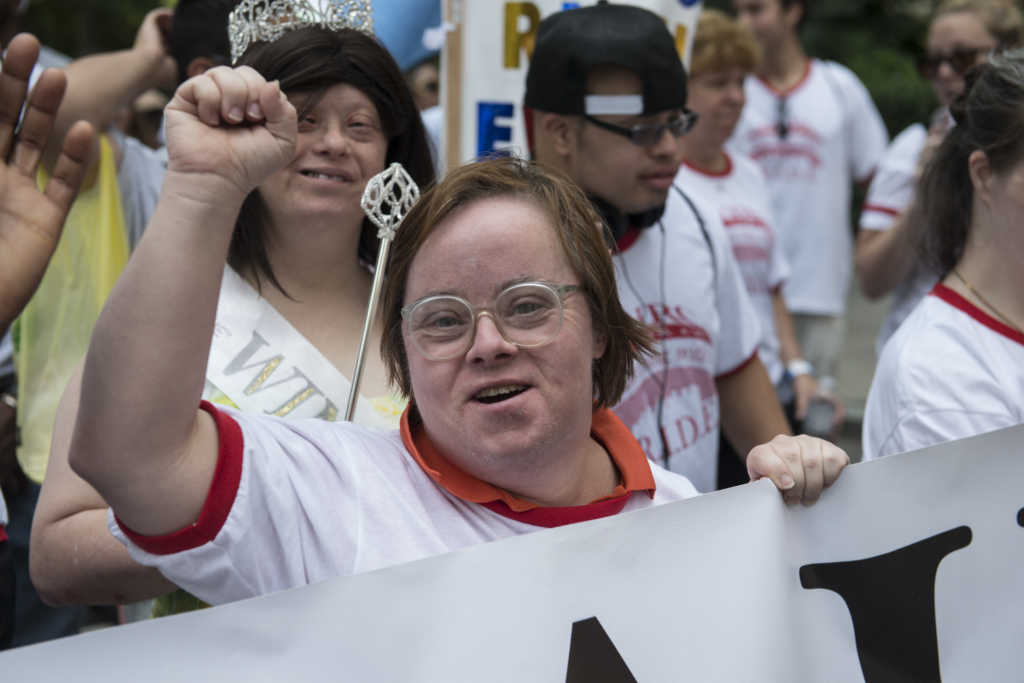As science evolves, it’s becoming increasingly simple to detect chromosomal defects and other serious disabilities in unborn children. A devastating consequence of such progress in the decision of many mothers to abort their babies simply because they have a disability. In real terms, this has yielded appalling statistics such as Iceland’s “near 100% abortion rate” for children with Down syndrome.
“We live in a society that claims to value and appreciate those who are different and those who have a disability and yet what we say and do are two different things,” Andrew Gray, a lay member of the U.K.’s Church of England Synod, or governing body, said during a debate last month.
“In countries like Iceland, Down’s syndrome has been virtually eliminated. What we have is a very simple situation. The U.K. and Europe [have] begun to practice eugenics, by default, and without intent,” Gray said.
The U.S. has a Down syndrome abortion rate of around 67 percent (1995-2011).
Many are speaking out against the utter devastation that is being caused against those with Down syndrome through this type of selective abortion. And one serious word that is on a lot of lips lately is “genocide.”
The definition of genocide is “the deliberate killing of a large group of people, especially those of a particular nation or ethnic group.” Should we not be classing Down syndrome children as a particularly vulnerable group who need protecting? Most nations do this once they are born, seeking to provide them with care and support as they navigate life with a disability. So why is the protection those that are unborn diminishing so rapidly?
“What one thinks about a genocide depends on what one thinks about the category involved,” writes George Will in his latest Washington Post op-ed. “In Iceland’s case, the category is people with Down syndrome.”
Just three Down syndrome babies were born in Iceland during the year 2009. One was a little girl named Agusta.
“Iceland could have moved one-third of the way to its goal if only Agusta had been detected and eliminated,” Will explains bluntly. “Agusta’s mother is glad the screening failed in her case.”
But some Icelandic doctors who are carrying out the testing and abortion of Down syndrome babies insist that some are still being brought into the world.
“Babies with Down syndrome are still being born in Iceland,” said Hulda Hjartardottir, head of the Prenatal Diagnosis Unit at Landspitali University Hospital, as reported by CBS News.
She qualified, however, that the only way these children are likely to escape termination is if what Will calls the “search and destroy” screening tests happen to miss the mark.
“Some of them were low risk in our screening test, so we didn’t find them in our screening,” Hjartardottir admitted.
But those who choose to raise disabled children in Iceland are facing an increased bias, and are met with a heavy-handed team of medical professionals who will try to talk them out of it. The destruction of Down syndrome babies is becoming the “new normal” in Icelandic society — a terrifying prospect. Indeed, one geneticist told CBS that many doctors are influencing “decisions that are not medical, in a way.”
For example, one Icelandic doctor is known to advise mother’s as follows: “This is your life. You have the right to choose how your life will look like.” She says, “We don’t look at abortion as a murder. We look at it as a thing that we ended.”
Just to be clear, this makes Agusta a “thing” that was not “ended.”
It is a scary prospect. The world has become so obsessed with attaining the “picture-perfect” life that the genocide of those with a chromosomal defect is becoming rather commonplace. Is that really a world we want to live in?



